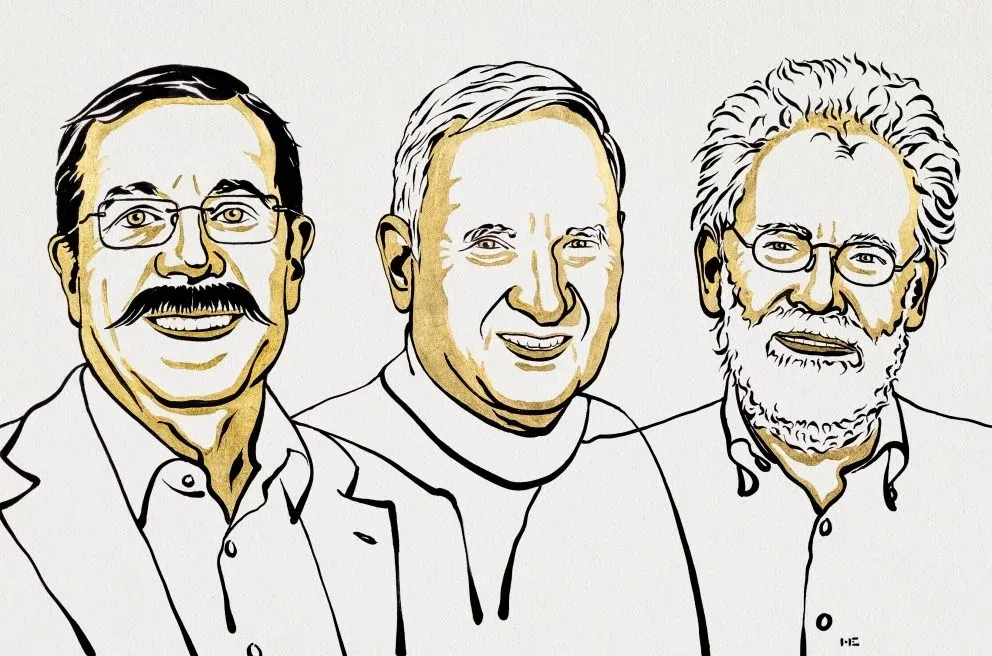
The importance of the Nobel Prize in Physics to Aspect, Clauser and Zeilinger
This year Nobel's prize in physics distinguishes remarkable results on a fundamental quantum phenomenon called 'entanglement'. This is a process by which pairs of particles can be created in a special state where the fate of one particle is fully determined by what happens to its twin even if they are very far away. If you observe one, it changes the state of the other instantly. This mysterious quantum entanglement, that Einstein himself called "spooky action at distance", violates our common sense of reality. Yet, as counterintuitive as it can be, this quantum action at distance exists, as demonstrated by the beautiful experiments first initiated by John Clauser in 1972 and then developed to an undisputable level of certitude by my colleague and friend from Paris-Saclay university, Alain Aspect, who run the decisive experiment in 1982.
Entangled pairs of particles, developed further by the third laureate Anton Zeilinger in Vienna, have now become a tool that can be used in cryptography or to build the basic blocks of quantum computers. This year's Nobel prize thus recognizes both a confirmation of the validity of quantum theory in its most subtle -and mind boggling- foundations, as well as the rapid development of a new era of quantum technologies.
Professor Marc Mézard, Department of Computing Sciences, Bocconi University
The experiments for which Frenchman Alain Aspect, American John Clauser and Austrian Anton Zeilinger were awarded the Nobel Prize in Physics demonstrate the violation of Bell's inequality, which proves the non-locality of quantum particles, and show that such particles can be created in a bound state that leads them to interact even at great distances, what is called 'entanglement.' These long-distance interactions can be exploited in many technologies, such as cryptography and quantum computation. These are very important experiments, foundational works, that defeat our common intuition. These are evidences that do not contradict classical physics, but show the completely different nature of quantum mechanics.
Professor Riccardo Zecchina, Department of Computing Sciences, Bocconi University